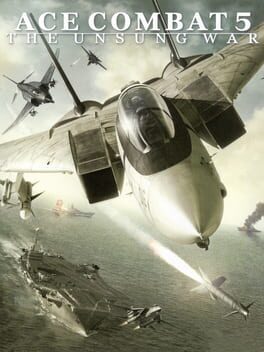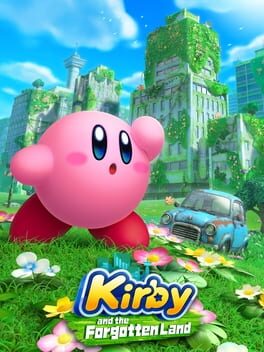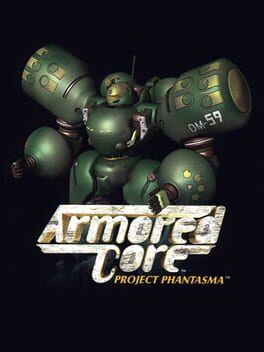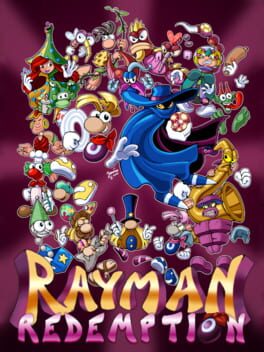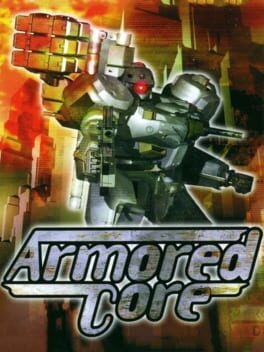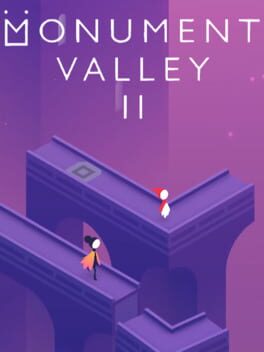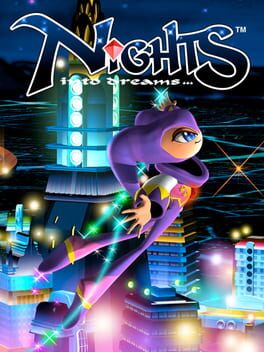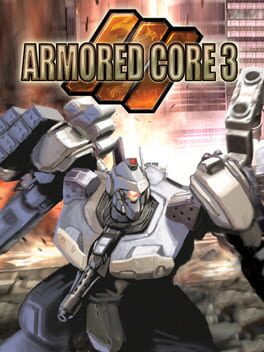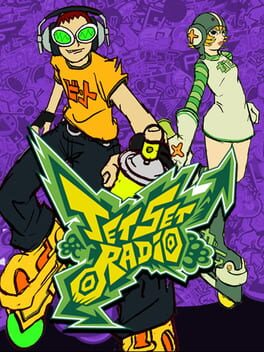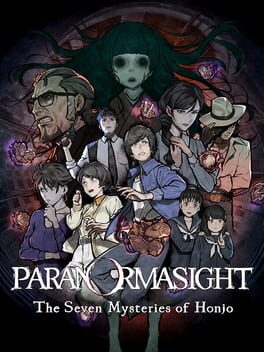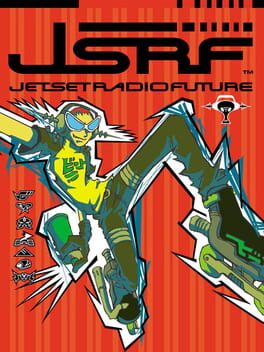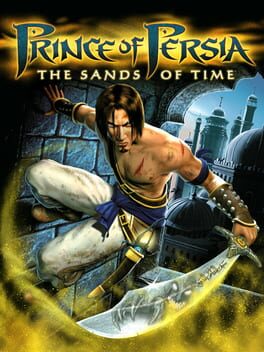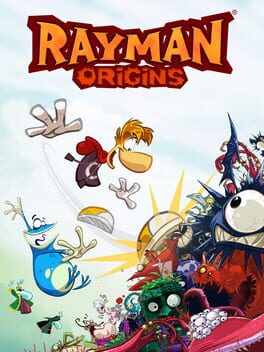HeyItMeBen
Having started the series with Ace Combat 7, I felt rather confident that it wasn't going to be topped. The missions were excellent, the controls sublime... this was what over 20 years of Ace Combat games had been building up to, right? And yet, here I am, reflecting on my time with Ace Combat 5 and simply dumbfounded at the sudden escalation in scope from its predecessors. Ace Combat 5: The Unsung War fires on all cylinders, leaving no aspect of the experience in the dust.
As an engine, this just feels like a slight upgrade to Ace Combat 04. I think I noticed some more detail in regards to weather effects, but otherwise this is more AC4, which isn't a bad thing at all! The music of the series has always been a highlight, yet it feels as if they've soared to even higher peaks this time around. The soundtrack is not only one of the series' best, but one of gaming's best. The average level of quality is astounding, with a solid diversity in regards to atmosphere and tempo. Some of the stand outs to me were Ice Cage, White Bird (Part I) and a contender for one of the best 'final boss' themes of all time, the titular Unsung War.
I really enjoyed Ace Combat 04's narrative, yet it was largely disconnected from your protagonist's point of view. I thought it a fresh approach, yet I found myself appreciating this game's direct storytelling far more. You're a silent protagonist still, yet this feels earnt the more you play the game. You are one of the Demons of Razgriz, a moniker to describe the squad that singlehandely pivoted the war. You aren't just a hero, you are a myth to many, both to your allies and your enemies. In this sense, I didn't mind missing out on a voiced protagonist, especially since the rest of the squad did some heavy lifting. Much like Ace Combat 3, this game wants you to be invested in its characters, which is easier given they actually pull their weight during battle. Each and every squadmate was precious to me, and the more secondary characters were also spotlighted to a degree that made me appreciate everyone's involvement.
To dive just a tad deeper into the plot itself, I appreciated how small of a scale everything started on. You get to view the war's escalation in real time from the perspective of a reporter, and by the end it's simple to understand how the game had built up to this point. It's very rare that you get to see a war of this scale through to completion, as the previous games always started you out as an established war pilot. There are twists and turns, missions that purely serve narrative, and many moments that pack an emotional punch, both happy and sad. It's a thrill ride, one without any brakes, and despite having a much longer single campaign than any of its predecessors, I can't say I was any less invested.
Now we come to the series' awkward sticking point: the missions. These games have struggled to find their footing in this regard, with Air Combat being understandably basic, to Ace Combat 2 providing much needed variety, to Ace Combat 3 experimenting yet ending up bloated and repetetive, to Ace Combat 04 finding a strong template that was stretched far too thin. If you've seen the score, it might be no surprise that Ace Combat 5 did it. While there are 3 extra missions I've yet to do, as well as an arcade mode which is separate to the campaign, I can safely say that there was zero filler in AC5. Basic "kill all enemies" objectives were few and far between, outweighed heavily by some incredibly creative concepts. Whether it was escorting a plane through a radar-infested field, racing the enemy to locate your lost squadmate or infiltrating an enemy's base to take damning pictures of their operations, the ideas seemed endless. These more specialised missions were used sparingly however, but the more 'generic' missions often had some twist that set them apart from one another. This usually meant layering multiple objectives together, with missions tending to last a while without dragging. There are boss fights of sorts which work better than anything previously and one of the most exhilarting chase sequences gaming has ever seen (spoilers: you are the one being chased). While I called the story a thrill ride, it would be more apt to give the descriptor to the game's missions, as Ace Combat 5 is akin to a rollercoaster ride that I never wanted to get off of.
Ace Combat 5: The Unsung War achives total parity between every element; story, characters, visuals, music and gameplay, all lacking flaws that hampered previous entries. None of this is to mention a streamlined armoury which made your choice of aircraft more impactful, the ability to direct your squad both in and out of battle, as well as the higher level of difficulty which made retrying missions and actually adapting to your circumstances necessary to succeed. Ace Combat 5 is brilliant, alright?
As an engine, this just feels like a slight upgrade to Ace Combat 04. I think I noticed some more detail in regards to weather effects, but otherwise this is more AC4, which isn't a bad thing at all! The music of the series has always been a highlight, yet it feels as if they've soared to even higher peaks this time around. The soundtrack is not only one of the series' best, but one of gaming's best. The average level of quality is astounding, with a solid diversity in regards to atmosphere and tempo. Some of the stand outs to me were Ice Cage, White Bird (Part I) and a contender for one of the best 'final boss' themes of all time, the titular Unsung War.
I really enjoyed Ace Combat 04's narrative, yet it was largely disconnected from your protagonist's point of view. I thought it a fresh approach, yet I found myself appreciating this game's direct storytelling far more. You're a silent protagonist still, yet this feels earnt the more you play the game. You are one of the Demons of Razgriz, a moniker to describe the squad that singlehandely pivoted the war. You aren't just a hero, you are a myth to many, both to your allies and your enemies. In this sense, I didn't mind missing out on a voiced protagonist, especially since the rest of the squad did some heavy lifting. Much like Ace Combat 3, this game wants you to be invested in its characters, which is easier given they actually pull their weight during battle. Each and every squadmate was precious to me, and the more secondary characters were also spotlighted to a degree that made me appreciate everyone's involvement.
To dive just a tad deeper into the plot itself, I appreciated how small of a scale everything started on. You get to view the war's escalation in real time from the perspective of a reporter, and by the end it's simple to understand how the game had built up to this point. It's very rare that you get to see a war of this scale through to completion, as the previous games always started you out as an established war pilot. There are twists and turns, missions that purely serve narrative, and many moments that pack an emotional punch, both happy and sad. It's a thrill ride, one without any brakes, and despite having a much longer single campaign than any of its predecessors, I can't say I was any less invested.
Now we come to the series' awkward sticking point: the missions. These games have struggled to find their footing in this regard, with Air Combat being understandably basic, to Ace Combat 2 providing much needed variety, to Ace Combat 3 experimenting yet ending up bloated and repetetive, to Ace Combat 04 finding a strong template that was stretched far too thin. If you've seen the score, it might be no surprise that Ace Combat 5 did it. While there are 3 extra missions I've yet to do, as well as an arcade mode which is separate to the campaign, I can safely say that there was zero filler in AC5. Basic "kill all enemies" objectives were few and far between, outweighed heavily by some incredibly creative concepts. Whether it was escorting a plane through a radar-infested field, racing the enemy to locate your lost squadmate or infiltrating an enemy's base to take damning pictures of their operations, the ideas seemed endless. These more specialised missions were used sparingly however, but the more 'generic' missions often had some twist that set them apart from one another. This usually meant layering multiple objectives together, with missions tending to last a while without dragging. There are boss fights of sorts which work better than anything previously and one of the most exhilarting chase sequences gaming has ever seen (spoilers: you are the one being chased). While I called the story a thrill ride, it would be more apt to give the descriptor to the game's missions, as Ace Combat 5 is akin to a rollercoaster ride that I never wanted to get off of.
Ace Combat 5: The Unsung War achives total parity between every element; story, characters, visuals, music and gameplay, all lacking flaws that hampered previous entries. None of this is to mention a streamlined armoury which made your choice of aircraft more impactful, the ability to direct your squad both in and out of battle, as well as the higher level of difficulty which made retrying missions and actually adapting to your circumstances necessary to succeed. Ace Combat 5 is brilliant, alright?
Kirby and the Forgotten Land is an exceptionally well put together entry in the series. After Star Allies, I was concerned that HAL was going to begin churning out new mainline Kirby games. Yet here we are, on the same system, with the first mainline 3D Kirby game, and what a wonderful transition the little guy has made into this new dimension. There's work to be done, but Forgotten Land puts its best foot forward and delivers an unforgettable adventure in this evergreen franchise.
HAL could have played this one safe with its setting. Star Allies (I haven't played it so take this with a grain of salt) seemed unambitious. Typical Kirby locales, typical Kirby bosses, with just a smattering of multiplayer mayhem intended to shake things up. The New Super Mario Bros. Wii of the series, if you will. Forgotten Land's world is not generically 'Kirby'. We're not on Popstar anymore and this new world is refreshingly unique yet unmistakably still Kirby. Ruins of a lost civilization contrast against all manner of cute creatures, teasing its twisted antagonist rather early for once. Everything is beautiful, possibly the best looking game on the Switch, lending to the creation of locales that rival the series' best. There's fanservice sprinkled throughout - it's a Kirby game after all - but the game is never reliant on it. I'm overjoyed that they decided to take such a bold step with both the gameplay and the setting!
Speaking of the gameplay, Kirby plays just like you'd expect him to do in 3D. No growing pains, it just works. We lost something in the process though. While the series had been building up each copy ability's movesets over several decades, Forgotten Land unfortunately has to return to its roots and the game suffers for it. I'd estimate that each copy ability has about 3 different moves, with some exceptions having more (or even less!). This means that copy abilities can get pretty stale, especially if you're used to the fleshed out abilities of previous games. I'm sure this is something a sequel will fix, but for the time being it's a tad disappointing, even if I understand why it had to be done. Each copy ability has upgrades which give them different properties, but this never really equates to added depth.
Every level has you doing something distinct, though I can't say I found most of the level design too engaging. It was always pleasant, but I never felt it was as tight as the likes of Triple Deluxe or Planet Robobot. Thankfully, the gimmick of this game is a hit. Mouthful Mode lets you engulf everyday objects such as a car, lightbulb or even a vending machine. Again, the amount of things you can do as each one is very limited, but they never overstay their welcome and there are plenty to discover throughout the lengthy campaign.
As with every Kirby game, there's a lot of optional guff to keep you busy. Optional challenges litter each level alongside more traditional collectibles in the form of caged Waddle Dees. As a massive Waddle Dee fan, I was extremely fond of their prevalence in this game, especially the whole town dedicated to the l'il guys. There's some fun things to do there too, again making this game its entirely own thing rather than feeling like a 3D version of an already existing Kirby game.
I had a blast with this. Even if I found my focus dwindling during long play sessions, I'm on the whole pleased as punch that Kirby remains in good hands. Maybe I'm setting my hopes too high, but I expect this game's sequel to be something truly exceptional. For now, though, this'll do just fine.
HAL could have played this one safe with its setting. Star Allies (I haven't played it so take this with a grain of salt) seemed unambitious. Typical Kirby locales, typical Kirby bosses, with just a smattering of multiplayer mayhem intended to shake things up. The New Super Mario Bros. Wii of the series, if you will. Forgotten Land's world is not generically 'Kirby'. We're not on Popstar anymore and this new world is refreshingly unique yet unmistakably still Kirby. Ruins of a lost civilization contrast against all manner of cute creatures, teasing its twisted antagonist rather early for once. Everything is beautiful, possibly the best looking game on the Switch, lending to the creation of locales that rival the series' best. There's fanservice sprinkled throughout - it's a Kirby game after all - but the game is never reliant on it. I'm overjoyed that they decided to take such a bold step with both the gameplay and the setting!
Speaking of the gameplay, Kirby plays just like you'd expect him to do in 3D. No growing pains, it just works. We lost something in the process though. While the series had been building up each copy ability's movesets over several decades, Forgotten Land unfortunately has to return to its roots and the game suffers for it. I'd estimate that each copy ability has about 3 different moves, with some exceptions having more (or even less!). This means that copy abilities can get pretty stale, especially if you're used to the fleshed out abilities of previous games. I'm sure this is something a sequel will fix, but for the time being it's a tad disappointing, even if I understand why it had to be done. Each copy ability has upgrades which give them different properties, but this never really equates to added depth.
Every level has you doing something distinct, though I can't say I found most of the level design too engaging. It was always pleasant, but I never felt it was as tight as the likes of Triple Deluxe or Planet Robobot. Thankfully, the gimmick of this game is a hit. Mouthful Mode lets you engulf everyday objects such as a car, lightbulb or even a vending machine. Again, the amount of things you can do as each one is very limited, but they never overstay their welcome and there are plenty to discover throughout the lengthy campaign.
As with every Kirby game, there's a lot of optional guff to keep you busy. Optional challenges litter each level alongside more traditional collectibles in the form of caged Waddle Dees. As a massive Waddle Dee fan, I was extremely fond of their prevalence in this game, especially the whole town dedicated to the l'il guys. There's some fun things to do there too, again making this game its entirely own thing rather than feeling like a 3D version of an already existing Kirby game.
I had a blast with this. Even if I found my focus dwindling during long play sessions, I'm on the whole pleased as punch that Kirby remains in good hands. Maybe I'm setting my hopes too high, but I expect this game's sequel to be something truly exceptional. For now, though, this'll do just fine.
I don't know if I needed more Armored Core 1, but this is just that! Everything good I said about that game still applies here, except for the story.
This game's story is a lot more direct. You follow a linear mission structure with little room for variance and the plot plays out in a much more standard manner. You have a companion for a majority of the runtime, there's an antagonistic rival who shows up to taunt you throughout and all in all, it was all a tad trite. There was a peculiar morality to Armored Core 1; you were a mercenary for hire, which meant being given some unsavoury jobs. I personally chose to ignore those in favour of other missions, which actually ended up skipping them entirely. It was simple but effective and I enjoyed being in that role a lot. In this, you're an action hero. There's no ambiguity, you are the good guy and while that's fine, I wasn't at all hooked.
The game's balance also feels a little off. Levels are generally longer and will whittle down your resources constantly. I'd fail a mission realising what I really needed to do was just ignore all the enemies. I just didn't like the objectives as much this time round, nothing stood out as particularly obnoxious, but in that same regard nothing was as special to me as some of the levels in the original. The final boss was a pain though, I tried for a while with the build that had decimated the rest of the game(s) only to unload all of my ammunition into that boss only for it not to end. I switched to a rocket weapon from the shop and annihilated him in 30 seconds, which came off rather limp. I know these kinds of fights are probably a staple of the series, but the core gameplay on the PS1 just doesn't really facilitate the faster pace as much as I'd like.
I enjoyed it enough. It's Armored Core at its core, but Project Phantasma doesn't bring enough new to the table to warrant its own existence. I didn't even mention the arena mode because I fought one enemy and knew I wouldn't get much out of it. Again, in a title that controls better, these 1-on-1 encounters might shine bright, but they're far too dull here.
This game's story is a lot more direct. You follow a linear mission structure with little room for variance and the plot plays out in a much more standard manner. You have a companion for a majority of the runtime, there's an antagonistic rival who shows up to taunt you throughout and all in all, it was all a tad trite. There was a peculiar morality to Armored Core 1; you were a mercenary for hire, which meant being given some unsavoury jobs. I personally chose to ignore those in favour of other missions, which actually ended up skipping them entirely. It was simple but effective and I enjoyed being in that role a lot. In this, you're an action hero. There's no ambiguity, you are the good guy and while that's fine, I wasn't at all hooked.
The game's balance also feels a little off. Levels are generally longer and will whittle down your resources constantly. I'd fail a mission realising what I really needed to do was just ignore all the enemies. I just didn't like the objectives as much this time round, nothing stood out as particularly obnoxious, but in that same regard nothing was as special to me as some of the levels in the original. The final boss was a pain though, I tried for a while with the build that had decimated the rest of the game(s) only to unload all of my ammunition into that boss only for it not to end. I switched to a rocket weapon from the shop and annihilated him in 30 seconds, which came off rather limp. I know these kinds of fights are probably a staple of the series, but the core gameplay on the PS1 just doesn't really facilitate the faster pace as much as I'd like.
I enjoyed it enough. It's Armored Core at its core, but Project Phantasma doesn't bring enough new to the table to warrant its own existence. I didn't even mention the arena mode because I fought one enemy and knew I wouldn't get much out of it. Again, in a title that controls better, these 1-on-1 encounters might shine bright, but they're far too dull here.
2020
I have yet to play Rayman 1 and I know it's supposedly clunky, but this fan remake exposes its creative ideas and in turn becomes one of the most enjoyable 2D platformers I've experienced. Unique level elements mixed with incredibly well hidden secrets combine to make every level stand out and excel in ways I never expected. The remake itself is superb, all of the new content blends in effortlessly and ties the package together perfectly.
1997
And so begins my Armored Core journey in a belated attempt to catch up with the series before I play VI. I was nervous going into this, the series didn't appear to be easy to get into, and the first game would surely be obtuse in all worst ways, right? Suffice to say, I was dead wrong!
The atmosphere in Armored Core is incredible. From the gritty solitude of the Ravens' Nest to the levels which range from a bright ocean sprawling out endlessly in all directions to the cramped ventilation shafts that keep the underground city alive. I found myself captivated by the narrative despite how sparse on details the game is. Almost everything you learn is through the mission briefings and emails, which do a great job of fleshing out the organisations that run the world. You scarcely find out things about the city and it all paints a destitute picture of a world under constant threat. Your job as a Raven is to work towards peace, and I was shocked to find myself enthralled by this simple premise. It just clicked, which was in no small part due to the timeless visuals and absolutely stellar soundtrack.
As I was emulating this, I took some liberties in regards to the controls. I changed aiming to be my right stick and set the triggers to boost and shoot. While I'm sure this dulled the challenge somewhat, it made the game far more accessible and I think I'd have found much less enjoyment had I just put up with the games rather archaic control system. It is a little janky still, but works rather well for everything you're expected to put up with. I had a hard time at first figuring out what kind of AC I wanted to rock, but once I put some time into understanding the way they're put together (as well as a little time reading a guide), I ended up with an AC I was incredible pleased with. I'd boost around the map at insane speeds, had energy for days to take to the skies and unleash devastating plasma bullets onto my enemies, as well as a backup missile system which dealt with those at range effortlessly. I felt a little too powerful after this, but because it was my own efforts that got me to that point, I was deeply empowering.
The missions themselves are pretty diverse. While many do boil down to killing all enemies, the environments tend to break up the monotony, leading to longer play sessions never feeling like a chore. There were a good few times where I'd scrape through a mission on my first try with nary a bullet or health points to spare, including the last level of the game. My only major qualm with these missions, as well as the game as a whole, is that failure early on feels brutal. You don't just have to replay the mission, you even lose money and at the beginning I found myself in debt constantly. After a few missions, I just decided to start afresh now that I was more familiar with what the game expected of me. While I did abuse save states at the beginning of missions to avoid paying the cost of failure, I rarely ended up relying on them because the game never gets too harsh. I would still change the mission structure though, it was a tad too punishing as a new player and made any kind of experimentation a huge risk.
The original Armored Core probably won't blow you away, but that's hardly an issue. It's not only a strong foundation, it's a superb experience nonetheless. It encapsulates the era it's apart of and gave me incredibly positive flashbacks to the first times I played Sin and Punishment as well as Ace Combat. My interest is piqued and I cannot wait to see what else this franchise has in store for me.
The atmosphere in Armored Core is incredible. From the gritty solitude of the Ravens' Nest to the levels which range from a bright ocean sprawling out endlessly in all directions to the cramped ventilation shafts that keep the underground city alive. I found myself captivated by the narrative despite how sparse on details the game is. Almost everything you learn is through the mission briefings and emails, which do a great job of fleshing out the organisations that run the world. You scarcely find out things about the city and it all paints a destitute picture of a world under constant threat. Your job as a Raven is to work towards peace, and I was shocked to find myself enthralled by this simple premise. It just clicked, which was in no small part due to the timeless visuals and absolutely stellar soundtrack.
As I was emulating this, I took some liberties in regards to the controls. I changed aiming to be my right stick and set the triggers to boost and shoot. While I'm sure this dulled the challenge somewhat, it made the game far more accessible and I think I'd have found much less enjoyment had I just put up with the games rather archaic control system. It is a little janky still, but works rather well for everything you're expected to put up with. I had a hard time at first figuring out what kind of AC I wanted to rock, but once I put some time into understanding the way they're put together (as well as a little time reading a guide), I ended up with an AC I was incredible pleased with. I'd boost around the map at insane speeds, had energy for days to take to the skies and unleash devastating plasma bullets onto my enemies, as well as a backup missile system which dealt with those at range effortlessly. I felt a little too powerful after this, but because it was my own efforts that got me to that point, I was deeply empowering.
The missions themselves are pretty diverse. While many do boil down to killing all enemies, the environments tend to break up the monotony, leading to longer play sessions never feeling like a chore. There were a good few times where I'd scrape through a mission on my first try with nary a bullet or health points to spare, including the last level of the game. My only major qualm with these missions, as well as the game as a whole, is that failure early on feels brutal. You don't just have to replay the mission, you even lose money and at the beginning I found myself in debt constantly. After a few missions, I just decided to start afresh now that I was more familiar with what the game expected of me. While I did abuse save states at the beginning of missions to avoid paying the cost of failure, I rarely ended up relying on them because the game never gets too harsh. I would still change the mission structure though, it was a tad too punishing as a new player and made any kind of experimentation a huge risk.
The original Armored Core probably won't blow you away, but that's hardly an issue. It's not only a strong foundation, it's a superb experience nonetheless. It encapsulates the era it's apart of and gave me incredibly positive flashbacks to the first times I played Sin and Punishment as well as Ace Combat. My interest is piqued and I cannot wait to see what else this franchise has in store for me.
2017
If you've played the original, this is more of the same (though I found the story to resonate a little better this time around).
Short and sweet, totally mind-bending puzzles define this series and I wasn't disappointed by any of them. All I can say is that I'd really love a fuller take on this concept; these games are tiny and largely very easy, it'd be wonderful to see what the team could create on a bigger scale. Though, I imagine this goes against the vision of the series, so I'd prefer to appreciate it for what it is, rather than what it could be.
Short and sweet, totally mind-bending puzzles define this series and I wasn't disappointed by any of them. All I can say is that I'd really love a fuller take on this concept; these games are tiny and largely very easy, it'd be wonderful to see what the team could create on a bigger scale. Though, I imagine this goes against the vision of the series, so I'd prefer to appreciate it for what it is, rather than what it could be.
2008
NiGHTS into Dreams is short but incredibly sweet. It's a banquet for the eyes and ears, boasting a soundscape which made every hoop, star and gem a joy to interact with.
None of this would work if the game didn't control well, but it does! It's simple yet responsive; while not the most complex game ever, it's incredibly satisfting to chain things together for long links. While I didn't quite get the itch to chase the A Ranks, it was rewarding to revisit the levels I did poorly on as my score raised dramatically my second time round.
The bosses are solid, the levels are all fun (though I wish the final one wasn't the exact same for both characters) and the vibes are just right. NiGHTS encapsulates 90s/00s SEGA and makes me long for a time where they were more willing to experiment.
None of this would work if the game didn't control well, but it does! It's simple yet responsive; while not the most complex game ever, it's incredibly satisfting to chain things together for long links. While I didn't quite get the itch to chase the A Ranks, it was rewarding to revisit the levels I did poorly on as my score raised dramatically my second time round.
The bosses are solid, the levels are all fun (though I wish the final one wasn't the exact same for both characters) and the vibes are just right. NiGHTS encapsulates 90s/00s SEGA and makes me long for a time where they were more willing to experiment.
2002
Finally, an Armored Core game I truly love. It has its flaws just like the rest of them, but has the best balance of mission design, story and music to date.
Armored Core 3 is a little more direct with its story from the get go. The world is explained to you, a society built in layers ruled over by a force known as "The Controller". It's simple sci-fi guff, giving me big Psycho Pass vibes, but more effectively established a core threat. Obviously, the idea of a supercomputer making every single decision is rather dystopian, and the game grapples heavily with themes of control and oppression. It won't win any awards, yet I was hooked throughout, and once again found myself building rapport with different companies based on how they responded to current events. It's AC storytelling at its best!
Missions are about as good as they've ever been, too. Plenty "kill all enemies" objectives, with a smattering of escorts, defences and more unique goals, such as surviving a firing range without shooting back or my favourite level, a vertical dive into a sunken cargo ship where you balance how much you can destroy with both a time limit and limited ammunition. Once you get to the bottom, you're put against the clock and have to scale your way back and with the game's electrifying soundtrack, it makes for an incredibly intense setpiece.
AC3 does fall into the trap of previous titles where the final stretch of the game can just be a tad too brutal. Everything kills you in seconds and requires an accurate onslaught from yourself in order to stand a chance. It's just a touch frustrating, but otherwise this game excels in its mission design.
Just a fantastic entry in a series I'm truly growing to adore. I've got a lot more Gen 3 ahead so I'm happy to see it's off to a great start.
Armored Core 3 is a little more direct with its story from the get go. The world is explained to you, a society built in layers ruled over by a force known as "The Controller". It's simple sci-fi guff, giving me big Psycho Pass vibes, but more effectively established a core threat. Obviously, the idea of a supercomputer making every single decision is rather dystopian, and the game grapples heavily with themes of control and oppression. It won't win any awards, yet I was hooked throughout, and once again found myself building rapport with different companies based on how they responded to current events. It's AC storytelling at its best!
Missions are about as good as they've ever been, too. Plenty "kill all enemies" objectives, with a smattering of escorts, defences and more unique goals, such as surviving a firing range without shooting back or my favourite level, a vertical dive into a sunken cargo ship where you balance how much you can destroy with both a time limit and limited ammunition. Once you get to the bottom, you're put against the clock and have to scale your way back and with the game's electrifying soundtrack, it makes for an incredibly intense setpiece.
AC3 does fall into the trap of previous titles where the final stretch of the game can just be a tad too brutal. Everything kills you in seconds and requires an accurate onslaught from yourself in order to stand a chance. It's just a touch frustrating, but otherwise this game excels in its mission design.
Just a fantastic entry in a series I'm truly growing to adore. I've got a lot more Gen 3 ahead so I'm happy to see it's off to a great start.
2022
I want to preface this by saying that survival horror (and really, horror in general) is a bit of a blind spot for me. I've played very few survival horror games and the ones I have played are often left unfinished. This isn't for any particular reason, though it's rare these games get their hooks in me. I did finish Signalis, and I did enjoy myself, but I fear what's going to be said in the latter paragraphs may be sacrilegious for fans of the genre, so I apologise in advance.
Signalis is its vibes. While I played this game in widescreen on my Steam Deck, part of me wonders if the experience could have been even better squashed onto a CRT TV, enhancing the analogue aspect of all the game's interacables. Interfacing with this game is a delight. Its menus and puzzles would fit right at home on the Nintendo DS, which is to say it's all incredibly tangible. From basic features like being able to rotate items in your inventory to the rather innovative radio and a whole host of locks across the game requiring you to adapt to unique control sets in order to open. This is rather typical of the genre, but the ones in Signalis just felt that much more authentic and creative.
Everything about this game's visual style is strong, though. A beautiful low-poly look meshes effortlessly with an advanced lighing engine and extremely detailed pixel art to create something that's distinctly "Signalis". This isn't to mention the use of 'glitchy' visuals that ties the whole thing together. It's pulled off immaculately and enhances what I found to be a confusing yet gripping story about love. There's a lot to absorb in this world and I found certain pieces of lore interesting, though much of it was glazed over. I respect the basic delivery of information through text logs, but whenever the game decided to display information in other formats, I found myself engaging with the content actively.
The game's best portions, used very sparingly, were first-person explorations of low detail environments which appeared to stretch on forever. It was just you and the atmosphere, which was all good by me. These short moments were a much needed break from the rest of the game, which often chugs along like a busted steam train. The gunplay works, the systems work, the puzzles are often great, and the areas are decent, though lacking in diversity. The kicker, then, is how bored I'd get. Enemies lost their fear factor mere minutes after meeting them, instead becoming awkward obstacles to stumble around. Perhaps this is actually just a level of narrative dissonance I'm failing to appreciate, but the enemies felt even more artificial than the machines you save the game on. Detection is sketchy, with foes often unable to pick up on me even as I brushed past their arm. When alerted, they slowly lunge towards you, and it wasn't long before I realised how to adequately bait them. This would be fine if this was the most common enemy type, but most of them work like this, even as you advance through the final levels. There's no life to them, you leave a room and they revert to exactly where you left them. Some enemies patrol rooms, which makes it a pain to open a door, see the enemy is in the wrong spot, back out, wait a little bit and try again. The ability to peek through doors would have remedied this immensely, but it wouldn't have stopped the game's main source of horror boiling down to tedium.
Without spoiling too much, there's one type of enemy I loved, and I felt my heart race as I figured out how to deal with it. The game needed more moments like this, encounters that will stick with you, haunt you, long after putting the game down. Signalis isn't scary, there's an existentialism to the story that I appreciated, but nothing unsettling enough to keep you up at night. Maybe this was an issue of expectations, but this was where I found the game most lacking. The dread I felt meeting my first Licker in RE2, followed by surprise attacks from Mr X at seemingly random intervals. Instead, I settled into a rhythm that the game seemed hesitant to interrupt. It's occasionally fun, especially one of the boss fights (I hate the others), but I'm left wondering why they couldn't have removed half of the enemies, and half of the ammunition; and thusly, half the backtracking, which didn't grate on me too much but was a consistent irritation regardless.
I'll remember this game for its vibes alone, and that's sometimes enough for me. But the bones of a masterpiece are here, and I know that some people were able to see that. I wish I could alter my perception and see exactly what they see, but for now I'll settle for a great, spooky time.
Signalis is its vibes. While I played this game in widescreen on my Steam Deck, part of me wonders if the experience could have been even better squashed onto a CRT TV, enhancing the analogue aspect of all the game's interacables. Interfacing with this game is a delight. Its menus and puzzles would fit right at home on the Nintendo DS, which is to say it's all incredibly tangible. From basic features like being able to rotate items in your inventory to the rather innovative radio and a whole host of locks across the game requiring you to adapt to unique control sets in order to open. This is rather typical of the genre, but the ones in Signalis just felt that much more authentic and creative.
Everything about this game's visual style is strong, though. A beautiful low-poly look meshes effortlessly with an advanced lighing engine and extremely detailed pixel art to create something that's distinctly "Signalis". This isn't to mention the use of 'glitchy' visuals that ties the whole thing together. It's pulled off immaculately and enhances what I found to be a confusing yet gripping story about love. There's a lot to absorb in this world and I found certain pieces of lore interesting, though much of it was glazed over. I respect the basic delivery of information through text logs, but whenever the game decided to display information in other formats, I found myself engaging with the content actively.
The game's best portions, used very sparingly, were first-person explorations of low detail environments which appeared to stretch on forever. It was just you and the atmosphere, which was all good by me. These short moments were a much needed break from the rest of the game, which often chugs along like a busted steam train. The gunplay works, the systems work, the puzzles are often great, and the areas are decent, though lacking in diversity. The kicker, then, is how bored I'd get. Enemies lost their fear factor mere minutes after meeting them, instead becoming awkward obstacles to stumble around. Perhaps this is actually just a level of narrative dissonance I'm failing to appreciate, but the enemies felt even more artificial than the machines you save the game on. Detection is sketchy, with foes often unable to pick up on me even as I brushed past their arm. When alerted, they slowly lunge towards you, and it wasn't long before I realised how to adequately bait them. This would be fine if this was the most common enemy type, but most of them work like this, even as you advance through the final levels. There's no life to them, you leave a room and they revert to exactly where you left them. Some enemies patrol rooms, which makes it a pain to open a door, see the enemy is in the wrong spot, back out, wait a little bit and try again. The ability to peek through doors would have remedied this immensely, but it wouldn't have stopped the game's main source of horror boiling down to tedium.
Without spoiling too much, there's one type of enemy I loved, and I felt my heart race as I figured out how to deal with it. The game needed more moments like this, encounters that will stick with you, haunt you, long after putting the game down. Signalis isn't scary, there's an existentialism to the story that I appreciated, but nothing unsettling enough to keep you up at night. Maybe this was an issue of expectations, but this was where I found the game most lacking. The dread I felt meeting my first Licker in RE2, followed by surprise attacks from Mr X at seemingly random intervals. Instead, I settled into a rhythm that the game seemed hesitant to interrupt. It's occasionally fun, especially one of the boss fights (I hate the others), but I'm left wondering why they couldn't have removed half of the enemies, and half of the ammunition; and thusly, half the backtracking, which didn't grate on me too much but was a consistent irritation regardless.
I'll remember this game for its vibes alone, and that's sometimes enough for me. But the bones of a masterpiece are here, and I know that some people were able to see that. I wish I could alter my perception and see exactly what they see, but for now I'll settle for a great, spooky time.
2012
The definition of style over substance, Jet Set Radio has an attitude seldom seen in titles from major publishers, especially today as companies move away from grunge and into clean, minamalistic designs. We've seen this shift in the Mario Strikers series and, I'd argue, even the Sonic series, with Frontiers lacking some of the rebellious flair the blue hedgehog has become known for. All of this is to say, while this game appealed to me aesthetically, I don't think it's actually very good.
To start with my most sacreligious take, I really don't think the music is all that. Naganuma's later work on Jet Set Radio Future, Sonic Rush and Lethal League Blaze easily trumps this game's soundtrack, with very few songs getting me to tap my feet. I even found certain songs grating, with the likes of Super Brothers making me want to mute the game and listen to a YouTube video or even my own music instead.
Where this game suffers greatest is in its gameplay. The movement is incredibly unrefined, with even the most basic actions feeling sluggish to pull off. Turning feels stiff, jumping is often awkward and the movement rarely flows together well. There are brief moments where everything clicks, but I mean really do mean brief. To exasperate it all, spray painting kills the pace every few seconds so you can do multiple quick time events in order to make your mark on the levels.
The pacing issues are then compounded with the people who chase you down, which range from standard police officers to guns to trained assassins with jetpacks. The former didn't pose too much of an issue, but I would still find myself in situations where I got caught up to in the middle of spray painting something huge, leading to an clunky exchange as I tried to continue painting as they kept pinning me down. The later into the game you get, the more these enemies become pests rather than threats. In Fight or Flight, it felt as if I couldn't move a few feet without coming under a barrage of gunfire, making the level feel like sludge to move through.
My final issue is with the level design. For some reason, there's a heavy emphasis on verticality. This is fun when you're grinding rails above the street, chaining them together with jumps to maximise efficiency by reaching targets in a well planned order. One slip up, though, and you're on the ground level. The way you reach these heights is usually through a single, incredibly slow, staircase. In one level, staircases are substituted out for elevators, which take a good few seconds to reach the top. My experience was made up of getting shot down by enemies and then slooooowly making my way up an elevator only to repeat the issue ad nauseum. Skill issue? Probably, but some levels had multiple routes up to high places using grind rails, so I don't know why this philosphy couldn't be extended to the whole game.
I can't stay mad at this game too long, though. I had bouts of fun here and there, and the visuals popped throughout. I quite enjoyed the final boss even if it had some jank of its own, and some of the rival chases were pretty solid. Jet Set Radio is a product of its time, but established a unique style and I'm excited to see how it's built upon in Future and especially Bomb Rush Cyberfunk.
To start with my most sacreligious take, I really don't think the music is all that. Naganuma's later work on Jet Set Radio Future, Sonic Rush and Lethal League Blaze easily trumps this game's soundtrack, with very few songs getting me to tap my feet. I even found certain songs grating, with the likes of Super Brothers making me want to mute the game and listen to a YouTube video or even my own music instead.
Where this game suffers greatest is in its gameplay. The movement is incredibly unrefined, with even the most basic actions feeling sluggish to pull off. Turning feels stiff, jumping is often awkward and the movement rarely flows together well. There are brief moments where everything clicks, but I mean really do mean brief. To exasperate it all, spray painting kills the pace every few seconds so you can do multiple quick time events in order to make your mark on the levels.
The pacing issues are then compounded with the people who chase you down, which range from standard police officers to guns to trained assassins with jetpacks. The former didn't pose too much of an issue, but I would still find myself in situations where I got caught up to in the middle of spray painting something huge, leading to an clunky exchange as I tried to continue painting as they kept pinning me down. The later into the game you get, the more these enemies become pests rather than threats. In Fight or Flight, it felt as if I couldn't move a few feet without coming under a barrage of gunfire, making the level feel like sludge to move through.
My final issue is with the level design. For some reason, there's a heavy emphasis on verticality. This is fun when you're grinding rails above the street, chaining them together with jumps to maximise efficiency by reaching targets in a well planned order. One slip up, though, and you're on the ground level. The way you reach these heights is usually through a single, incredibly slow, staircase. In one level, staircases are substituted out for elevators, which take a good few seconds to reach the top. My experience was made up of getting shot down by enemies and then slooooowly making my way up an elevator only to repeat the issue ad nauseum. Skill issue? Probably, but some levels had multiple routes up to high places using grind rails, so I don't know why this philosphy couldn't be extended to the whole game.
I can't stay mad at this game too long, though. I had bouts of fun here and there, and the visuals popped throughout. I quite enjoyed the final boss even if it had some jank of its own, and some of the rival chases were pretty solid. Jet Set Radio is a product of its time, but established a unique style and I'm excited to see how it's built upon in Future and especially Bomb Rush Cyberfunk.
My visual novel itch was in full force when I was reminded that Paranormasight existed. I didn't need to know what it was about; the game's unique take on visuals and the overwhelmingly positive reception on Steam were more than enough to hook me in. While this game has some superb elements, I found the narrarive pretty muddy for the majority of my playtime.
I hope Paranormasight sets a new standard for how visual novels CAN look. You have the expressive static sprites of Danganronpa placed into 3D dioramas that use various camera angles to give conversations a level of dynamism that I've never seen in the genre. There's also scarce examples of unique interactive elements that, while not always hitting the mark, were appreciated nonetheless and forced me to flip my thinking on its head. The game's opening in particular had me on tender hooks; even turning around became a challenge due to how the game utilised horror.
That horror feels underdeveloped, however. For the first hour or so, it's a tense romp through a town at night, meeting new characters and forcing you to doubt the intentions of them all. What I thought would be the core mechanic is the curse stone, which lets you kill anyone who walks away from you. Other people have these curse stones, but there's no way to tell how the others are activated. Who can I trust? Are they only talking to me so they can activate their curse? Should I kill them before they get the chance? This choice rarely felt impactful as the game is actually rather railroaded besides some short alternate endings to some scenes. After the first night plays out, most of the game sees you bouncing between multiple playable characters in order to unravel the mystery of the curse stones and the much sought-after Rite of Resurrection.
I can't quite put my finger on why this section doesn't work for me. There are some fantastic twists and most of the characters are likeable (Tetsuo and Richter especially), but the pacing just feels off. Perhaps it's because the opening hour felt like a sprint, followed by jogging a marathon that never breaks into a run again. The same points are repeated ad nauseum for different characters and, combined with each conversation being drawn out a touch too long, lead me to occasionally losing focus. And as much as the visuals help to make each scene unique, the music actively detracts from that. While there are songs that score big moments (such as a catch all track for scary revelations), each character has their own theme which accompanies a majority of their scenes. I like how they sound, but found them incredibly repetitive and just wildly unsuitable to the vibe they were trying to build throughout.
Paranormasight is great game, but some of the fat needed trimming, or taken in another direction entirely. A lot of the beats work well enough but the delivery needed work. Progression was often confusing, forcing you to position characters in specific places before another character's scene could continue. I can only hope we see more from this team because, from a quality assurance perspective, they absolutely know what they're doing. Just tighten the screws a little and we may have a masterpiece on our hands.
I hope Paranormasight sets a new standard for how visual novels CAN look. You have the expressive static sprites of Danganronpa placed into 3D dioramas that use various camera angles to give conversations a level of dynamism that I've never seen in the genre. There's also scarce examples of unique interactive elements that, while not always hitting the mark, were appreciated nonetheless and forced me to flip my thinking on its head. The game's opening in particular had me on tender hooks; even turning around became a challenge due to how the game utilised horror.
That horror feels underdeveloped, however. For the first hour or so, it's a tense romp through a town at night, meeting new characters and forcing you to doubt the intentions of them all. What I thought would be the core mechanic is the curse stone, which lets you kill anyone who walks away from you. Other people have these curse stones, but there's no way to tell how the others are activated. Who can I trust? Are they only talking to me so they can activate their curse? Should I kill them before they get the chance? This choice rarely felt impactful as the game is actually rather railroaded besides some short alternate endings to some scenes. After the first night plays out, most of the game sees you bouncing between multiple playable characters in order to unravel the mystery of the curse stones and the much sought-after Rite of Resurrection.
I can't quite put my finger on why this section doesn't work for me. There are some fantastic twists and most of the characters are likeable (Tetsuo and Richter especially), but the pacing just feels off. Perhaps it's because the opening hour felt like a sprint, followed by jogging a marathon that never breaks into a run again. The same points are repeated ad nauseum for different characters and, combined with each conversation being drawn out a touch too long, lead me to occasionally losing focus. And as much as the visuals help to make each scene unique, the music actively detracts from that. While there are songs that score big moments (such as a catch all track for scary revelations), each character has their own theme which accompanies a majority of their scenes. I like how they sound, but found them incredibly repetitive and just wildly unsuitable to the vibe they were trying to build throughout.
Paranormasight is great game, but some of the fat needed trimming, or taken in another direction entirely. A lot of the beats work well enough but the delivery needed work. Progression was often confusing, forcing you to position characters in specific places before another character's scene could continue. I can only hope we see more from this team because, from a quality assurance perspective, they absolutely know what they're doing. Just tighten the screws a little and we may have a masterpiece on our hands.
2002
Now this is Jet Set Radio. All the attitude of its predecessor with a far more palatable gameplay experience, Jet Set Radio Future is an evolution in almost every sense of the word.
Tokyo-to has never looked better. The world of Future is huge, with each area offering something distinct. You've got basic layouts with Shibuya Terminal and 99th Street but also batshit insane areas like The Skyscraper District and Sky Dinosaurian Square. Each is beautiful, offering a wide array of views that feels like a natural step from JSR. My only critique with the visuals is that I'm not fond of most characters' redesigns. While I like what they did with Beat, Corn and a couple others, they largely reduced the charm by removing wackier elements from certain characters. It gives the game a more 'grown up' vibe, but this series is so inherently wacky that I just don't get the vision. The worst offenders are Combo and Gum, and none of the new characters did much for me either. Having said that, Hayashi and his pathetic demeanour always put a smile of my face, definitely a step up from the first's police chief.
Another area where JSRF ups the ante stylistically is in its soundtrack. I was surprised by how few the memorable tracks were in the original, but the total opposite was true here. Several songs ended up in my Spotify playlist and those that didn't were still good listens in their own right (the only exception being Birthday Cake, but in a soundtrack this big, it scarcely reared its ugly head). The way each song transitions into another is brilliant and I can't really praise the music enough. Give it a listen if you haven't; I'd recommend Aisle 10, Teknopathetic, Rockin' the Mic and, of course, The Concept of Love for a varied offering.
This game controls so smoothly compared to JSR. It's hard to put game-feel into words, but the original felt like I was controlling bricks. Turning was difficult, especially in the air, and building momentum could be brutal. I found that the quickest way to move was often just to jump over and over, yet it would still feel sluggish whenever I wasn't on rails. Future gives up on making momentum building a struggle and lets you zoom straight into action whenever. This is aided by the number of rails in the game; everything is a rail! This is a good thing, as chaining rail grinds (while also performing tricks to keep you engaged) feels amazing. You can even grind certain rails upwards, fixing a lot of the vertical levels that could otherwise feel like chores to climb. Some levels are still guilty of this, with the bottom of the sewer being a pain to navigate for all the secrets.
And speaking of secrets, I was shocked to find myself collecting every single one! Now that there's no timer, I realised how fun it was to explore with this movement system and the levels highly encourage it. Tons of graffiti scattered everywhere on top of Grafiti Souls (some of which only show up after completing certain challenges) makes these already sizeable levels feel massive. The aforementioned Skyscraper District is an example that I was originally finding disorienting and infuriating, but as I got into the groove of searching for everything, it became a delightful navigational puzzle, having me ponder how on earth I'd reach each objective. The reward was not in the collectible, but in the journey to it. I cannot understate how well put together these levels are, everything else about the game could have been mediocre and yet I'd still manage to enjoy delving into these environments.
Jet Set Radio Future is a chunky game, there's a ton to do, a lot of which does feel like padding. There are some lacklustre objectives, a rote re-treading of the original's story and some frustration to be had in getting around certain locations, but I was never ever sick of it. The vibes were immaculate and only served to lift the wonderful levels, of which there are many. Jet Set Radio Future gave me a world that I managed to lose myself in for hours on end, and barely anything could stop me once I entered its flow.
Tokyo-to has never looked better. The world of Future is huge, with each area offering something distinct. You've got basic layouts with Shibuya Terminal and 99th Street but also batshit insane areas like The Skyscraper District and Sky Dinosaurian Square. Each is beautiful, offering a wide array of views that feels like a natural step from JSR. My only critique with the visuals is that I'm not fond of most characters' redesigns. While I like what they did with Beat, Corn and a couple others, they largely reduced the charm by removing wackier elements from certain characters. It gives the game a more 'grown up' vibe, but this series is so inherently wacky that I just don't get the vision. The worst offenders are Combo and Gum, and none of the new characters did much for me either. Having said that, Hayashi and his pathetic demeanour always put a smile of my face, definitely a step up from the first's police chief.
Another area where JSRF ups the ante stylistically is in its soundtrack. I was surprised by how few the memorable tracks were in the original, but the total opposite was true here. Several songs ended up in my Spotify playlist and those that didn't were still good listens in their own right (the only exception being Birthday Cake, but in a soundtrack this big, it scarcely reared its ugly head). The way each song transitions into another is brilliant and I can't really praise the music enough. Give it a listen if you haven't; I'd recommend Aisle 10, Teknopathetic, Rockin' the Mic and, of course, The Concept of Love for a varied offering.
This game controls so smoothly compared to JSR. It's hard to put game-feel into words, but the original felt like I was controlling bricks. Turning was difficult, especially in the air, and building momentum could be brutal. I found that the quickest way to move was often just to jump over and over, yet it would still feel sluggish whenever I wasn't on rails. Future gives up on making momentum building a struggle and lets you zoom straight into action whenever. This is aided by the number of rails in the game; everything is a rail! This is a good thing, as chaining rail grinds (while also performing tricks to keep you engaged) feels amazing. You can even grind certain rails upwards, fixing a lot of the vertical levels that could otherwise feel like chores to climb. Some levels are still guilty of this, with the bottom of the sewer being a pain to navigate for all the secrets.
And speaking of secrets, I was shocked to find myself collecting every single one! Now that there's no timer, I realised how fun it was to explore with this movement system and the levels highly encourage it. Tons of graffiti scattered everywhere on top of Grafiti Souls (some of which only show up after completing certain challenges) makes these already sizeable levels feel massive. The aforementioned Skyscraper District is an example that I was originally finding disorienting and infuriating, but as I got into the groove of searching for everything, it became a delightful navigational puzzle, having me ponder how on earth I'd reach each objective. The reward was not in the collectible, but in the journey to it. I cannot understate how well put together these levels are, everything else about the game could have been mediocre and yet I'd still manage to enjoy delving into these environments.
Jet Set Radio Future is a chunky game, there's a ton to do, a lot of which does feel like padding. There are some lacklustre objectives, a rote re-treading of the original's story and some frustration to be had in getting around certain locations, but I was never ever sick of it. The vibes were immaculate and only served to lift the wonderful levels, of which there are many. Jet Set Radio Future gave me a world that I managed to lose myself in for hours on end, and barely anything could stop me once I entered its flow.
To quickly get the port discussion out of the way, the audio mixing on the Steam version is terrible, but I actually enjoyed some of the dialogue from the prince in this one.
The game itself is... fine. It's just fine. It's good, probably. The platforming was fun enough and never really got boring, though it also wasn't anything too special either. But this game has a horrible, horrible flaw and that's the combat. It's dreadful, I don't care much to describe how it works because you need only watch some footage or play the game to understand how mind-numbing it is. I probably wouldn't hate the combat if it was used sparingly, but Ubisoft just had artificially extend the game's length so people couldn't beat it too quickly. Almost every fucking platforming challenge is punctuated by a combat room. Multiple enemies, usually spawning over and over, it was so so so tedious!
The game has a charm to it, though. It's quaint and largely inoffensive, something a compliment I can't offer to its sequel. I can only hope the remake addresses some of its shortcomings, though I'm starting to doubt we'll ever even see it.
The game itself is... fine. It's just fine. It's good, probably. The platforming was fun enough and never really got boring, though it also wasn't anything too special either. But this game has a horrible, horrible flaw and that's the combat. It's dreadful, I don't care much to describe how it works because you need only watch some footage or play the game to understand how mind-numbing it is. I probably wouldn't hate the combat if it was used sparingly, but Ubisoft just had artificially extend the game's length so people couldn't beat it too quickly. Almost every fucking platforming challenge is punctuated by a combat room. Multiple enemies, usually spawning over and over, it was so so so tedious!
The game has a charm to it, though. It's quaint and largely inoffensive, something a compliment I can't offer to its sequel. I can only hope the remake addresses some of its shortcomings, though I'm starting to doubt we'll ever even see it.
2019
How does one review Baba is You? This is a game about rules that constantly sees you breaking them in order to progress. Well, you're not actually defying the rules, but the game intends to make it seem you are.
I'm still playing Baba is You. I've gotten the basic ending but there's more to see, and I've only made a small dent in New Adventures, the game's additional level pack. There's a peculiar atmosphere here, each song establishes a new, weird vibe for the various worlds. The visuals are sparse, building clarity between objects and the background; the empty space serves another purpose, though. The levels are solitudinous, you're alone in this world. Even when you can take control of other characters or force them to move, it never ends up feeling any less lonely. There's beauty in this isolation and I often got lost in the ambience.
As an aside, I don't know why people bothered to continue designing characters after Baba's inception. As a species, we peaked in 2019 and it's just been downhill ever since.
Baba is You is baby's first programming game, which might imply that the game is easy. This couldn't be more wrong. While the building blocks are simple to understand and fun to play around with, the contraptions present in this game are frankly diabolical. In other games, you'd be presented with a small set of tools with basic functionality, therefrom slowly fabricating more complex interactions until you have a encyclopedic knowledge of how everything works and can string it together in clever ways. In Baba is You, it almost feels as if knowledge is a detriment. Rarely will two levels in Baba is You require a similar thought process. Each one will have you rethinking the very foundations the game is built on, asking you to jump to brand new conclusions on how to utilise its many, many idiosyncratic nouns, operators and properties. So often will a solution seem simple only for you to test it and find out it cannot work, tinkering with it over and over before realising you needed to throw out the book altogether.
This fundamental design is both Baba is You's strongest boon and greatest detriment. There's a fine line between the eureka moments and the moments where you feel like a caveman, bashing your head against every object in the level without even an inkling of how to progress. As for myself, I managed to beat the game without hints, but I've decided to continue playing using Baba is Hint, an excellent site which should keep the game more fun than infuriating. It's also worth noting that there are some brilliant surprises and subversions of your understanding, namely to do with a certain Level noun.
Baba is You is boundlessly creative. An engaging test of your ability to problem solve, specifically using out-of-the-box alternatives to pre-established norms. It's an ethereal experience that, even after bouncing off several years back, I was compelled to restart and see it through to the end. Don't be fooled by its exterior, though. Baba is You might be one of the most brutal puzzle games I've ever played, which will always make it a little too prickly to recommend to everyone.
I'm still playing Baba is You. I've gotten the basic ending but there's more to see, and I've only made a small dent in New Adventures, the game's additional level pack. There's a peculiar atmosphere here, each song establishes a new, weird vibe for the various worlds. The visuals are sparse, building clarity between objects and the background; the empty space serves another purpose, though. The levels are solitudinous, you're alone in this world. Even when you can take control of other characters or force them to move, it never ends up feeling any less lonely. There's beauty in this isolation and I often got lost in the ambience.
As an aside, I don't know why people bothered to continue designing characters after Baba's inception. As a species, we peaked in 2019 and it's just been downhill ever since.
Baba is You is baby's first programming game, which might imply that the game is easy. This couldn't be more wrong. While the building blocks are simple to understand and fun to play around with, the contraptions present in this game are frankly diabolical. In other games, you'd be presented with a small set of tools with basic functionality, therefrom slowly fabricating more complex interactions until you have a encyclopedic knowledge of how everything works and can string it together in clever ways. In Baba is You, it almost feels as if knowledge is a detriment. Rarely will two levels in Baba is You require a similar thought process. Each one will have you rethinking the very foundations the game is built on, asking you to jump to brand new conclusions on how to utilise its many, many idiosyncratic nouns, operators and properties. So often will a solution seem simple only for you to test it and find out it cannot work, tinkering with it over and over before realising you needed to throw out the book altogether.
This fundamental design is both Baba is You's strongest boon and greatest detriment. There's a fine line between the eureka moments and the moments where you feel like a caveman, bashing your head against every object in the level without even an inkling of how to progress. As for myself, I managed to beat the game without hints, but I've decided to continue playing using Baba is Hint, an excellent site which should keep the game more fun than infuriating. It's also worth noting that there are some brilliant surprises and subversions of your understanding, namely to do with a certain Level noun.
Baba is You is boundlessly creative. An engaging test of your ability to problem solve, specifically using out-of-the-box alternatives to pre-established norms. It's an ethereal experience that, even after bouncing off several years back, I was compelled to restart and see it through to the end. Don't be fooled by its exterior, though. Baba is You might be one of the most brutal puzzle games I've ever played, which will always make it a little too prickly to recommend to everyone.
2011
I've re-visited this game in the past, but never re-completed it, which I finally got round to doing with my partner. It obviously holds up, but the experience wasn't as smooth as I had hoped for.
To address the co-op up front, it's solid but acted as a hindrance in many levels. During the Tricky Treasure levels especially, friendly fire becomes such a massive detriment. You're often required to attack to progress, and just as often this will just kill the player who got hit by the attack. Friendly fire is fun to mess with during regular levels but really needed an option to disable to let the faster levels excel.
As much as I love this game, I found this playthrough pretty tedious. Perhaps I'm spoiled by Legends having all of the moves off the bat, but having to unlock them all again wasn't ideal. I wouldn't change this admittedly, but I figured it was worth mentioning. The real issue with this game is the second half which sees you returning to each world to trek through new levels and fight that world's boss. The difficulty is generally higher but seems to fluctuate immensely, the actual problem being that there's so little to make these levels feel "new". You've seen all of the game's best ideas by this point and while some of the world's utilise them in fresh and creative ways, there's a general feeling of 'been there, done that' that pervades the entire back end of the game.
There's also the mosquito levels which I've never liked and continued to dislike here. They last a long time and just aren't that fun. There's little else I can say about them, though I do recall the lum quotas for the medals being miserable to collect back in the day. For this playthrough, we just collected every Electoon which I found rather enjoyable. The levels are very linear so they're never that hard to find, but the timer and lum quotas made getting the most out of each level a rewarding challenge.
And that's Origins, a beautiful game with a whimsical soundtrack and a very, very solid platformer that loses steam the further into it you get. None of this is to mention the game that Origins was initially teased as, but that's a discussion I'm not ready to have here. I'll be replaying Legends next and expect I'll have a little more fun with that one, but I'm now at the point where I believe nothing in this series holds up to Rayman Redemption.
To address the co-op up front, it's solid but acted as a hindrance in many levels. During the Tricky Treasure levels especially, friendly fire becomes such a massive detriment. You're often required to attack to progress, and just as often this will just kill the player who got hit by the attack. Friendly fire is fun to mess with during regular levels but really needed an option to disable to let the faster levels excel.
As much as I love this game, I found this playthrough pretty tedious. Perhaps I'm spoiled by Legends having all of the moves off the bat, but having to unlock them all again wasn't ideal. I wouldn't change this admittedly, but I figured it was worth mentioning. The real issue with this game is the second half which sees you returning to each world to trek through new levels and fight that world's boss. The difficulty is generally higher but seems to fluctuate immensely, the actual problem being that there's so little to make these levels feel "new". You've seen all of the game's best ideas by this point and while some of the world's utilise them in fresh and creative ways, there's a general feeling of 'been there, done that' that pervades the entire back end of the game.
There's also the mosquito levels which I've never liked and continued to dislike here. They last a long time and just aren't that fun. There's little else I can say about them, though I do recall the lum quotas for the medals being miserable to collect back in the day. For this playthrough, we just collected every Electoon which I found rather enjoyable. The levels are very linear so they're never that hard to find, but the timer and lum quotas made getting the most out of each level a rewarding challenge.
And that's Origins, a beautiful game with a whimsical soundtrack and a very, very solid platformer that loses steam the further into it you get. None of this is to mention the game that Origins was initially teased as, but that's a discussion I'm not ready to have here. I'll be replaying Legends next and expect I'll have a little more fun with that one, but I'm now at the point where I believe nothing in this series holds up to Rayman Redemption.
